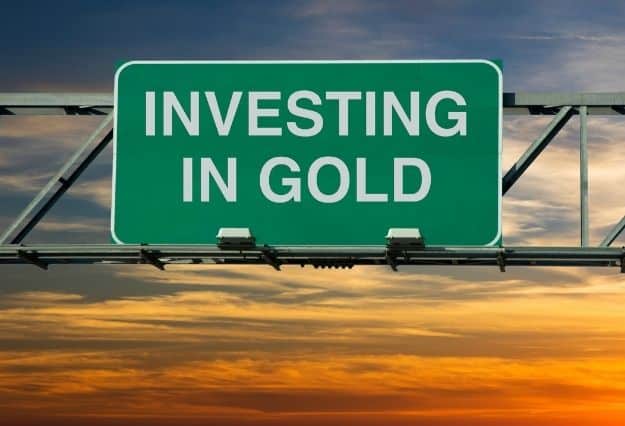Why Should You Consider Investing In Gold
The rich history gold carries affords it a level of respect with which the world views the precious metal creating demand and adding to its value. That has carried through for centuries. Since roughly 750 B.C. pure gold coins were discovered. Ultimately, societies and economies invoked a sense of value, causing people to hold the metal for varied reasons, lending more worth to the metal.
Gold is the metal the economy falls back on when there is a crisis, or other currency methods are at a downslide, meaning it will always carry value as a hedge when times become tough.
The market fluctuates tremendously. It has over the last two decades, most often leaving paper assets at a substantial loss. If an investor doesn’t diversify these options with other opportunities like that of gold, they can suffer incredible loss at the hands of a tumultuous economy. Unlike paper currency, it is preservable and can pass on from generation to generation without corrosion or detriment.
Reasons You Should Own Gold
Gold has maintained a healthy value for centuries, unlike that of paper currency. People view the precious metal as an ideal way to pass on their wealth to the next generation as ancestors before them have done.
The U.S. dollar, however, is volatile, with the value faltering often, as it has within the last two decades. With each fall of the market, people grasp gold’s security, elevating its worth further.
Investors pull the metal into their portfolios with companies advising to diversify – look at a few of the gold investment company reviews for guidance. Diversification in a portfolio using it makes sense when other investments fail due to a faltering economy.
Some other why should you consider investing in gold
1. A hedge against inflation.
Throughout history, gold has served as a successful hedge against harsh economic times. When inflation is at its worst, people with diversified portfolios complete with the precious metal do much better through the increasing costs of living than those investors solely relying on their stocks, mutual funds, bonds, and other paper assets.
Typically when the prices increase, its value also goes up, so while people see incredible losses on one side of their investment packet, the other side is seeing gains, creating a nice balance in the plan.
2. Deflation is not often seen but felt significant.
Deflation hasn’t been seen worldwide since the 1930 Great Depression. It’s a time when the costs decrease, business slows, and the economy sees an immense level of debt. During the Depression, gold’s buying power was significant while prices of most everything else substantially fell.
People were attempting to hold cash, and the most secure place to do so was by exchanging it for gold. If society were to see that same predicament today, the same reaction would most likely stand true. Go to https://www.investopedia.com/articles/basics/08/invest-in-gold.asp to learn if it is still a wise investment.
3. Uncertainty relating to “geopolitical” affairs.
When citizens have less than usual confidence in their government, the price tends to rise. The reference is “crisis commodity.” People prepare themselves to be safe from a possible worst-case scenario in a potential crisis.
When the world or country tensions are at an all-time high, it will usually outperform any other investment while citizens attempt to secure themselves in a tumultuous situation.
4. Diversification for investment portfolios.
The idea of diversifying a portfolio is to look for investments that don’t correlate closely. Gold traditionally holds the least correlation to stocks and other financial holds in that platform.
In an effort to prevent volatility in a package, investors will include the precious metal along with other investments like stocks. In this way, when the market becomes rocky, it will typically carry the load while the rest of the paper assets often bottom out. See here things you should know before investing in the metal.
Unfortunately, if gold were to fall flat, the economy might be seeing some difficulties at the same time since it has a long-standing history of value and worth. Generally, it serves as a hedge for bad economic times. It would be interesting to see how everything was functioning in that scenario – or maybe not.
Final Thought
As a rule, gold should be a primary component in an investor’s diversified portfolio, especially someone investing for retirement. The precious metal price rises typically due to episodes in the economy or the market that create declining values in paper asset investments like bonds, mutual funds, or stocks.
Investors who take gold as a short-term option might find the metal a volatile choice, but gold investment is wise in the long-term as it has never disappointed with its value, and that goes back centuries.
At the first sign of disorder or crisis, people turn to it over most any other form of currency. When hoarding cash in periods of deflation, it’s not the paper currency that society feels safe and secure in holding but rather gold coins.
When looking forward to a bright future, no one feels 100% secure in not having it as one of their investments. Not only can it be a safety net for an economic upset or a hedge against inflation, but it can pass on to the next generation without fear of corrosion, loss, or damage, and from that generation to the next.
These serve as merely a few reasons why it’s wise to include precious metals in a diversified portfolio. There are no reasons to leave gold out of an investment packet unless you have minimal education on its advantages.


